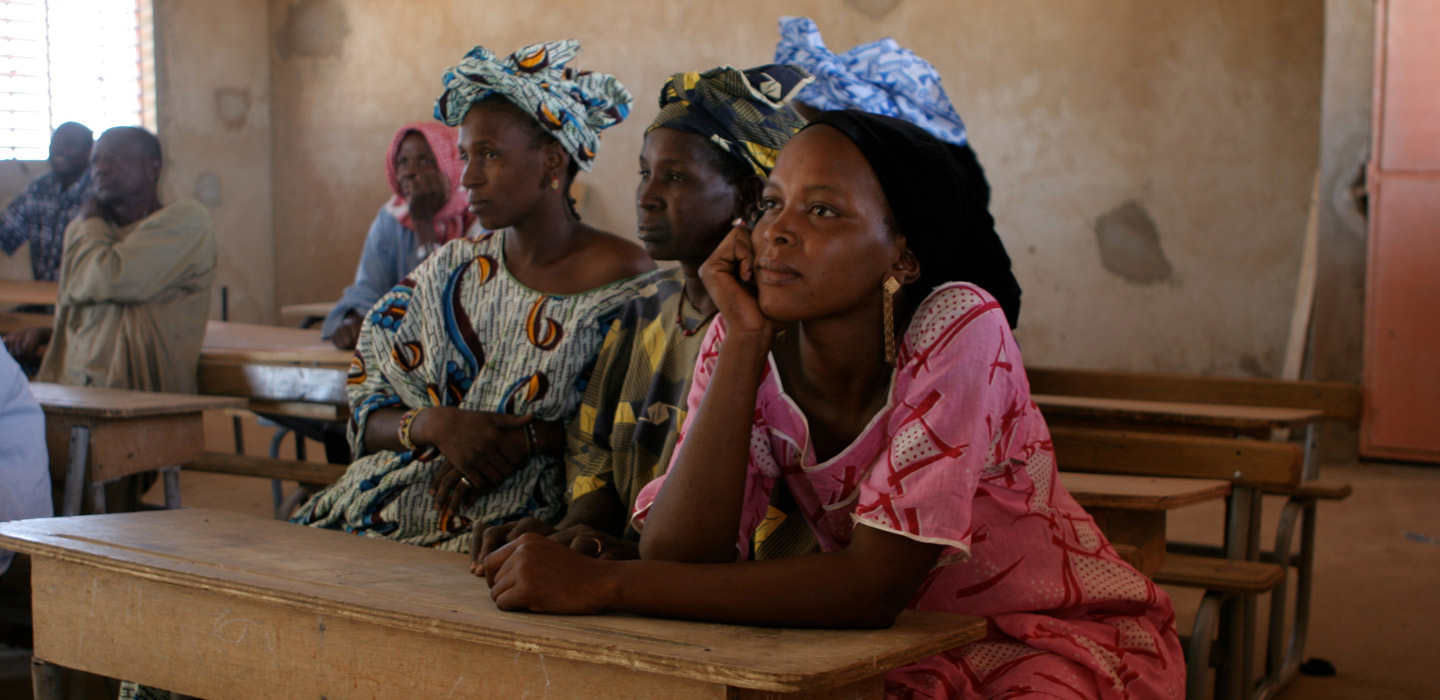A platform to take household methodologies to scale
IFAD Asset Request Portlet
Asset Publisher
A platform to take household methodologies to scale
Estimated reading time: 4 minutes
All too often, interventions in the agricultural sector to promote gender equality and women’s empowerment focus on strengthening women’s economic opportunities and decision-making capacities as individual farmers or in groups. However, intra-household dynamics are equally as important as the root cause of existing inequalities, including disproportionate burdens of unpaid labour, childcare, malnutrition and domestic violence. If these same women remain disempowered within their households, the root causes of gender inequalities remain unchallenged. Change needs to start at home.
The Empower@Scale platform helps organizations to address the root causes of gender inequality by incorporating household methodologies (HHMs) into their projects, which address the embedded gender biases and discrimination against women at the household level. Gender Action Learning Systems, or GALS, are an example of an HHM, in which a shared vision is developed within families in order to address the existing gender constraints and empower members of households to realize their development potential.
The new platform has been created as part of a broader Empower@Scale grant project, which in four years aims to create a network of local and national Empowerment Learning Centres (ELC) for quality assured capacity development services on HHM as well as two Regional Hubs for networking, knowledge sharing and monitoring the use of HHMs.
IFAD is the leading UN agency innovating with HHMs to effectively reach poor households and improve intra-household gender relations. There are currently more than 50 ongoing IFAD investments across the five regions we work in that have HHMs integrated into them, which represents almost 25 per cent of IFAD's total loan portfolio. In order to address the root causes, rather than the symptoms of gender inequality, applying HHMs to development projects has shown successful results in tackling underlying social norms, attitudes, behaviours and systems.
In Sierra Leone, IFAD is piloting the use of GALS in the Rehabilitation and Community-based Poverty Reduction Project (RCPRP). A shift of gender norms for both men and women has become clear: IFAD saw a reported increased household and farm work collaboration, with a better distribution of the workload and increased sharing of family income. Helena Lowe, a facilitator who has been helping implement the GALS methodology for almost ten years, explains how part of it works:
"When the husband has more power, and usually it is the man who has more power, the couple will end up working on his vision, only. This is not what we are looking for. We want to change those power relationships, to transform them. By encouraging women to share their own plans for the couple, we made them stronger, because they did not believe in themselves very much. Then, most of the time, when they shared their own plan, it was more visionary than their husbands’ were. And the couple, together, realizes it can do more."
When the couple thinks and plans together, the results are clear. "Men become so surprised when they start understanding the amount of work their wives have to do so they can have the life that they have. Then, they start to work differently. They start taking responsibility for household chores. That's a change I can see across all the countries that I have worked with GALS," Helena says.
In Sierra Leone, there were also reports of a reduction in expenditures, including on alcohol consumption and gambling, and in violence and conflicts. Scaling up empowerment through HHMs can help improve dialogue and decision-making among family members, who work together to achieve more equitable relations. The outcome is a strengthened overall well-being of the household and all its members, in both social and economic terms.
"Usually, husbands are responsible for all the money, including the part that the wife earned, and they decide what to give back to their wives. When there is joint planning of household income, everyone wins. It's a big change, when women can take decisions on the household income and how to invest it."
Sharing experiences, finding solutions, and scaling up
The gathering and analysis of data help IFAD understand how it can do better on the ground. In the past, there have been many individual and isolated HHM initiatives across regions, but by linking these initiatives together, the Empower@Scale grant project and the new platform will ensure stronger evidence for scaling up gender transformative approaches in IFAD projects and beyond.
The best way to learn about HHMs is from the experience of local champions in their communities. With Empower@Scale, IFAD collaborators can easily share their experiences with HHMs and access resources provided by other collaborators. It is possible to locate users according to their roles and region, message them, and share strategies. Besides facilitating the exchange of knowledge online, in a time when travelers face many restrictions, it also enhances access to projects in other languages.
The platform builds on partnerships and collaboration, allowing IFAD to develop best practices and compare strengths of projects to improve the status of women in rural areas. IFAD's projects, strategies and solutions to address gender imbalances will be more easily integrated, enriching its efforts to achieve gender equality.
Learn more about the Empower@Scale project and platform and IFAD’s work with HHMs on the ground.
Publication date: 18 June 2021